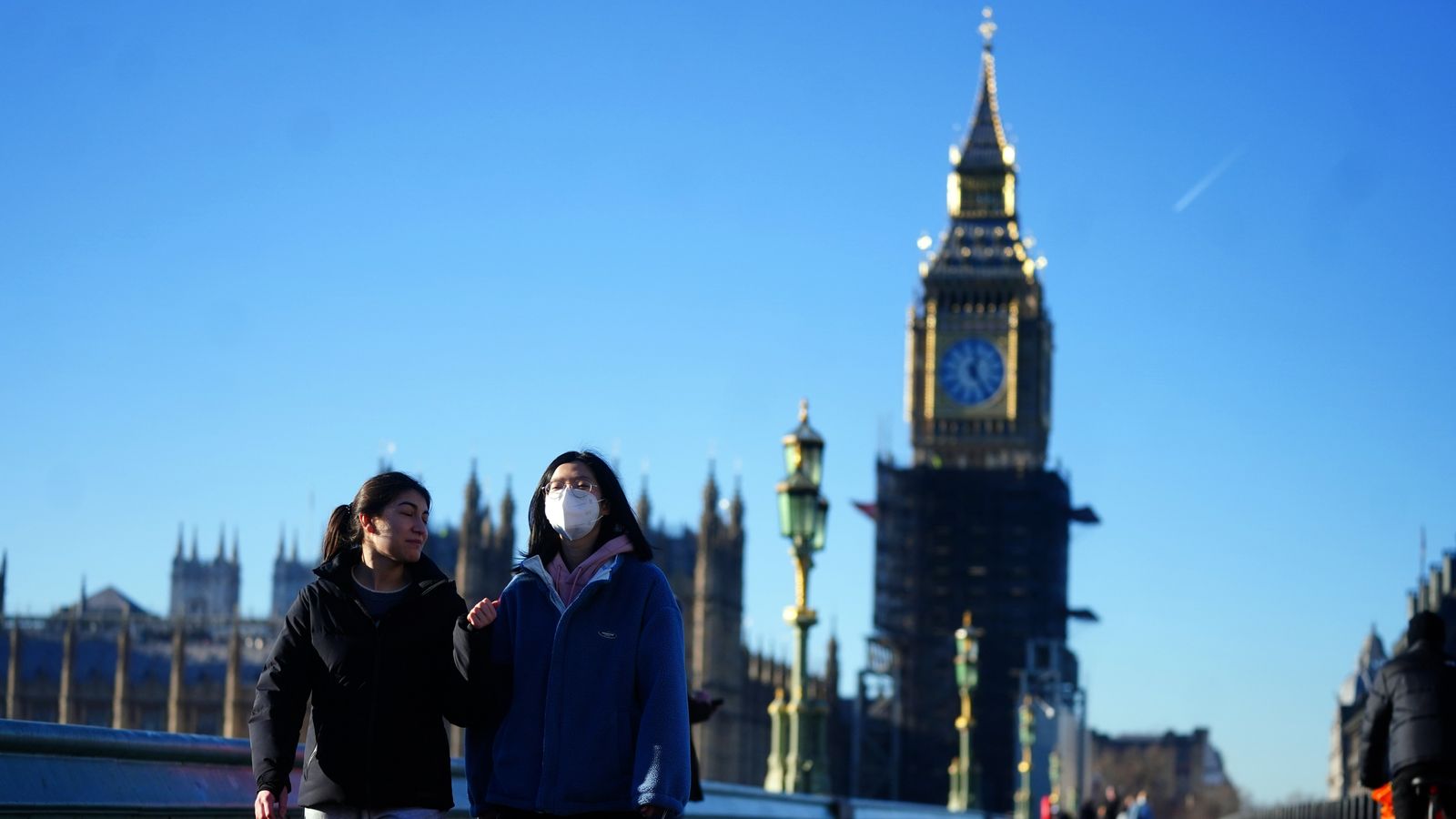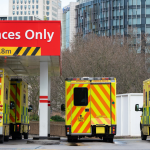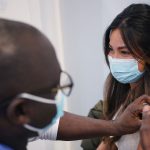Coronavirus cases are “plateauing” in areas first hit by Omicron, with hospital admissions “slowing” in other parts of the country, experts have said.
Dr Susan Hopkins, chief medical adviser at the UK Health Security Agency (UKHSA), said infection levels in London, the South East and East of England are flattening off.
She said that while case numbers are still rising in more northern parts of the country, the growth rate there is slowing.
Follow the latest coronavirus updates
“We see that infections are plateauing in the community, which is good, in London and the South East and the East of England,” she told BBC Radio 4’s Today programme on Saturday.
“There are still risings, but much slower in the northern parts of the country.”
On Friday, the UK’s R (reproduction) number was estimated to be between 1.1 and 1.5, which means the epidemic is still growing.
COVID-19: UK records 81,713 cases and 287 deaths in last 24 hours
Sir Keir Starmer raising the stakes in battle over Boris Johnson’s future amid new ‘wine time’ claims
COVID-19: Omicron ‘exit wave’ possible in the summer, scientists say
But, the daily growth in infections has fallen slightly – now at +1% to +5%, down from +3% to +6%.
COVID hospital admissions ‘slowing down’
Dr Hopkins added that hospital admissions are “slowing down”, and although not decreasing, trusts have been able to discharge patients “faster” due to Omicron being relatively milder than other variants.
She stressed that the NHS remains under “a lot of pressure”, with around 2,000 new COVID patients admitted daily across the country.
Many are “unable to do much of their elective care” due to high levels of staff COVID absences.
Hospital data ‘great cause for optimism’
But Dr Chris Smith, a consultant virologist at Cambridge University, said the latest coronavirus data from hospitals is giving him “great cause for optimism”.
“The number of people who are going into intensive care or are on mechanical ventilation beds is actually dropping. It has remained flat,” he told BBC Breakfast.
He also claimed that around 96% of people in the UK now have antibodies, from either vaccines or natural infection, which means the majority can “fend off” the virus.
Health correspondent
COVID cases seem to be stabilising across large parts of the UK, as speculation grows over the lifting of Plan B restrictions in England.
Figures for London, which first faced the wave of Omicron, show infections are starting to plateau. There is a similar trend in the South East and East of England.
Even parts of the North of England where cases are still rising, data suggests the rate of growth is starting to slow.
The number of cases is still really high though with one in 15 infected in England and one in 20 in other parts of the UK.
The big difference between this wave is the vaccine and a bigger level of immunity.
This is clear if you look at the number of people admitted to hospital. The current numbers, over 2,000 a day, are much lower than this time last year.
What’s more, the numbers seem to be slowing down.
Hospitals might not be overwhelmed, but they are under huge pressure, with some areas struggling with high staff absences.
Many are now asking if the government will lift the current restrictions in England on 26 January. Judging by the current data, it is looking increasingly likely.
The next question is harder, how close are we to the end of the pandemic?
Put simply, have we reached an acceptable stage of the virus? Given the large number of infections, it doesn’t feel like it yet, but we definitely seem to be heading in the right direction.
The number of reported daily COVID cases fell below 100,000 for the first time since 21 December on Friday.
On Saturday it was below that level again – at 81,713. A further 287 deaths were recorded.
According to The Daily Telegraph, the government is planning to lift Plan B measures in England from 26 January.
But reports claim the rules on mask wearing could remain in place.
In Wales, if the data allows, working from home guidance will be lifted and nightclubs will reopen on 28 January.






















